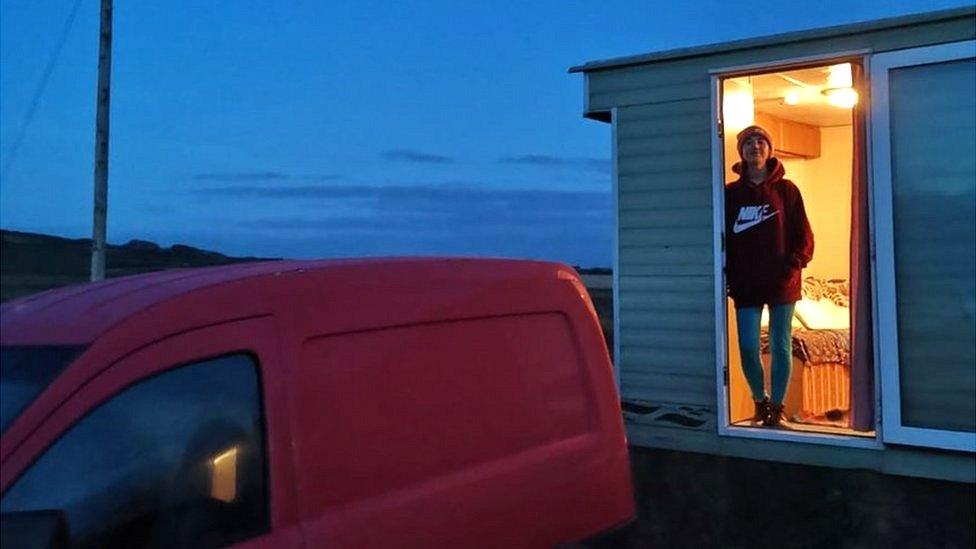Cost of living sees young people in Wales living back at home
- Published
Rising living costs force young adults to go home
Rapidly rising living costs are forcing young professionals in Wales to move back home with their parents.
High house prices have stopped many from getting on the first rung of the property ladder.
But now they are being priced out of the rental market too.
Fuel and food costs are leaving many with very little left out of their wages to save or pay for rent and bills.
Jasleen Grewal-Dhoot worked two jobs while studying for her university degree, then moved back home to save for her own place.
She works full-time as a trainee accountant in Cardiff and sticks to a strict budget.
But she is one of many young people in Wales who say they cannot afford to rent, as the cost of living continues to rise.
"Because I'm a trainee we're not on much. I try to keep on a budget, I live at home to save up, I pay mum bills - I pay for my dog's veterinary fees, my car," said Jasleen.
"My mum wants me to save but it's hard because I'm on quite a low wage, but I'll chip in and pay for my food shopping.
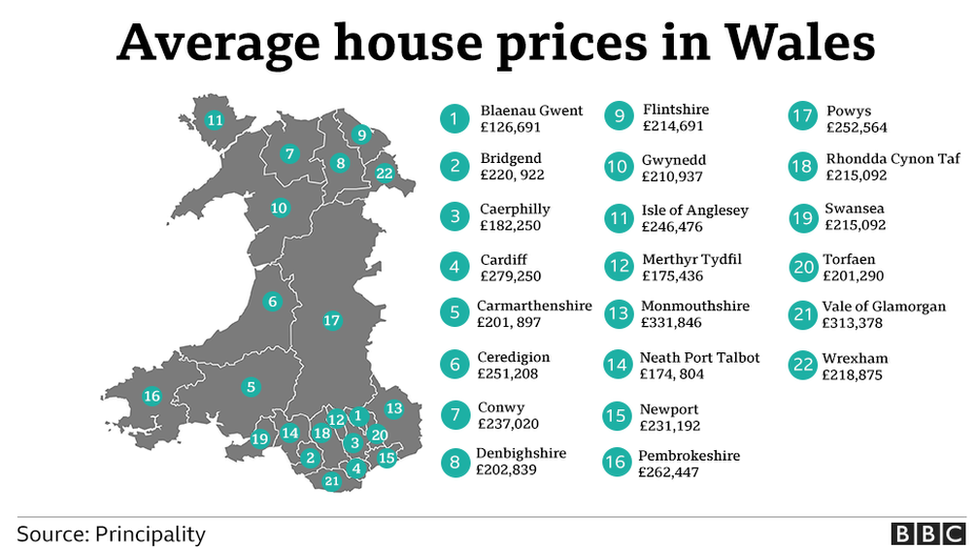
In Wales, Blaenau Gwent has the cheapest average property prices, whilst the highest is in Monmouthshire
"I'm 24 and I've got a full-time job but I can't afford to actually move out, I can't even afford rent in Cardiff."
Jasleen, an athlete and current Miss Wales finalist, said she struggled to cope with unexpected costs and was not left with much money at the end of every month.
"Someone reversed into my car the other week and that was one month's wages gone," she said.
"If I didn't live at home I don't know what I would do as I'd be paying rent and paying bills."

Actress Emma Kaler says independence has become too expensive
Actress Emma Kaler, who graduated last June, lives with her parents in Cardiff.
"It's really dawning on me now as a young professional how expensive it is to live," she said.
"Meeting people at university and experiencing people from different backgrounds who don't have a support system or who don't have a base has really made me appreciate having a base.
"I can understand being a young person in this climate what it's like, how it feels impossible to move up the ladder in a way and actually have your independence because it's just so expensive."
Her father Dal Kaler said: "We actually love Emma being home. But at her age she needs her own independence.
"We actually find it a little bit difficult... let alone youngsters who are just coming into jobs. I don't know how some of them can afford to live without a support network around them."

Student Hope Mbwembwe is living at home with her mum to save on bills
Hope Mbwembwe, 19, is a medical pharmacology student at Swansea University.
She is enjoying student life now that Covid restrictions have eased, but still lives at home with her mother Sibu.
She said living costs meant she would not be moving out any time soon.
"Luckily I don't pay rent but I do pay for my phone bill and anything that I want I have to pay for, so extra stuff like Netflix or Amazon Prime, I'll pay for it," she said.
"I have thought about it [moving out], but obviously due to rent and how much it is, I'm a bit sceptical."
Hope's mother, Sibu Mbwembwe, the former general manager of the African Community Centre in Swansea, said young people were having to make tough choices about their futures.
"Everybody was looking forward to go back to normal [after Covid restrictions ended], but then normality is going out for food, meeting your friends and you can't do that anymore now because the cost of living has gone high," she said.
"Young people have been complaining - there are people who are going to uni now in September and one of them I know has been having a conversation about how he's moving away from home and he was really concerned how he was going to manage because it's initially really expensive without the cost of living going up.
"Now things are much worse, he wishes he would have stayed at home. If he knew things would turn out the way they are now he wouldn't have gone away to uni, he'd have stayed at home because he wouldn't have had that extra responsibility of having to pay for rent and food.
"A lot of those young people are worried about that."
'Record levels'
Principality Building Society's chief financial officer Tom Denman said they had seen a slowdown in activity.
"We are seeing that house price activity in the first quarter of this year is about 4% slower than in previous quarters, so that could be a sign of things are starting to slow down a little bit," he said.
"In the last quarter or so, we've seen the demand for bigger properties start to fall off, and seen the demand for flats start to increase, I expect to see the sale of flats to continue in the near future."
He added that the average Welsh house price had been taken to record levels, but that was "probably no different to the rest of the UK at the moment"

AMY DOWDEN, CHARLOTTE CHURCH, GREGORY PORTER & AMY WADGE: It's Showtime with Michael Ball!
CAREER CHANGE WITH A DIFFERENCE: Police new recruits adapt to life on the beat

- Published20 April 2022
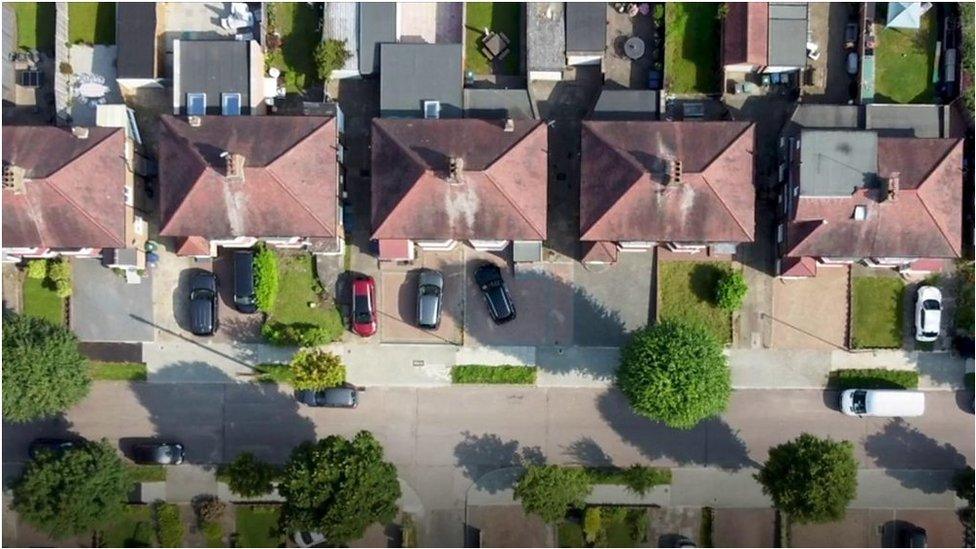
- Published2 February 2022

- Published28 March 2022

- Published1 February 2022
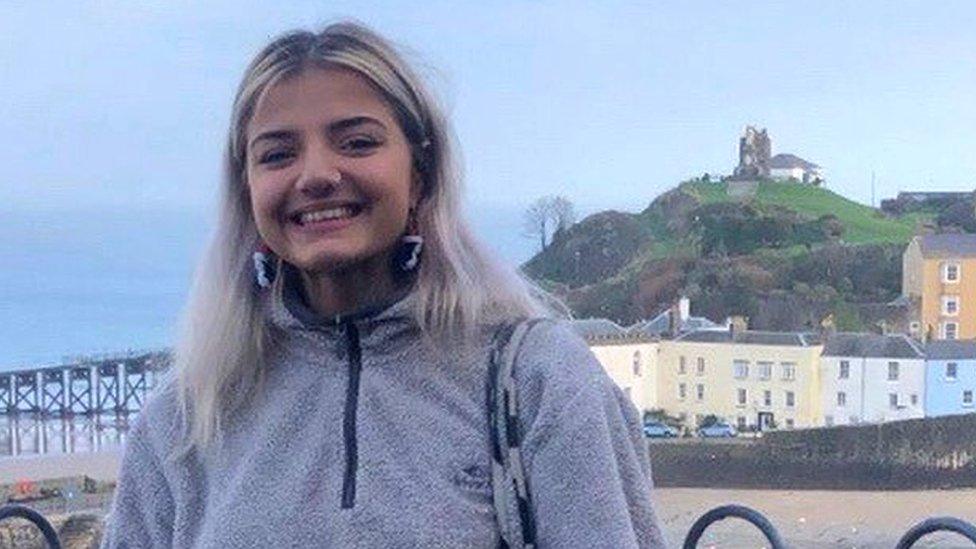
- Published29 May 2021
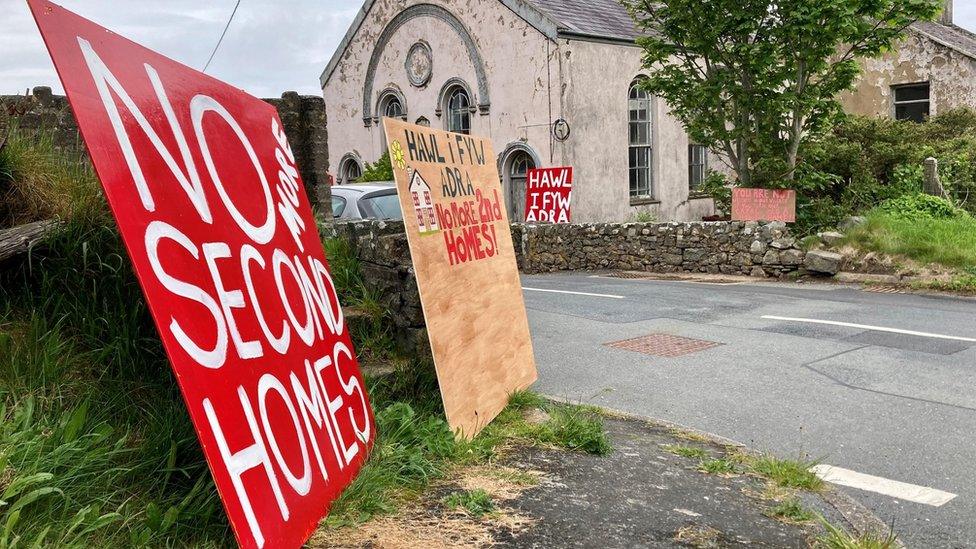
- Published24 November 2021
